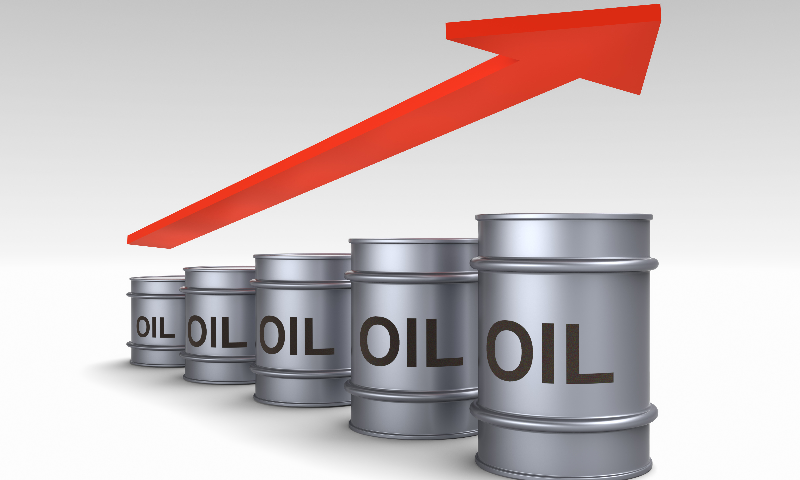
In a little-noticed report, JPMorgan Chase warned in early March that the oil market could be on the cusp of a "supercycle" that sends Brent crude skyrocketing as high as $190 a barrel in 2025.
Weeks later, the coronavirus pandemic set off an epic collapse in oil prices as demand imploded. And yet the bank is doubling down on its bullish view.
Brent hit a two-decade low of $15.98 a barrel in April. US crude crashed below zero for the first time ever, bottoming at negative $40 a barrel.
The United States, Russia and Saudi Arabia — the three largest producers — have dramatically slashed production in response. The massive supply cuts helped breathe life back into oil prices.
Though demand remains depressed, JPMorgan still thinks a bullish oil supercycle is on the horizon. A huge amount of supply has been taken offline and the industry could have major trouble attracting future capital.
"The reality is the chances of oil going toward $100 at this point are higher than three months ago," said Christyan Malek, JPMorgan's head of Europe, Middle East and Africa oil and gas research.
Looming deficit suggests prices will 'go through the roof'
For years, the world has had more oil than it needs. That glut caused storage tanks to fill up to the point that crude turned negative in April.
So oil producers slashed supply. But now the pendulum in the boom-to-bust oil industry could swing too far in the opposite direction.
Oversupplied oil markets will flip into a "fundamental supply deficit" beginning in 2022, according to a JPMorgan report published June 12. The most likely scenario, JPMorgan said, is that Brent rises to $60 a barrel to incentivize higher output.
The report didn't spell out a price target for its bull case scenario — yet Malek told CNN Business that JPMorgan's $190 bullish call from March still stands. In fact, he thinks it's even more likely now.
Malek, who has been bearish since 2013, pointed to the very large supply-demand deficit that's expected to emerge in 2022 and could hit 6.8 million barrels per day by 2025 — unless OPEC and others pump much more.
"The deficit speaks for itself. That implies oil prices will go through the roof," he said. "Do we think it's sustainable? No. But could it get to those levels? Yes."
BP sounds the alarm
Of course, it's hard to imagine triple-digit crude today. Some analysts believe even the rebound in US oil from negative $40 to positive $40 in just seven weeks is overdone.
Coronavirus cases are spiking in some areas in the United States and Latin America. Demand for gasoline is improving but isn't nearly back to pre-pandemic levels. And it could take years for the airline industry to fully recover — if it ever does.
BP warned this week that the health crisis could have an "enduring impact on the global economy," causing less demand for energy over a "sustained period." The UK oil giant slashed its forecast for Brent crude prices over the next three decades by 27% to $55 a barrel.
BP also said it plans to write down the value of its assets — including untapped oil and gas reserves — by up to $17.5 billion.
Somewhat counterintuitively, JPMorgan's Malek said the BP writedown and gloomy forecast are "one of the most bullish" developments he's seen.
That's because oil companies must spend heavily just to maintain production, let alone increase it. If they do nothing, output will naturally decline.
And BP's weaker outlook suggests even fewer long-term oil projects will make the cut. That in turn will keep supply low — even as demand rises.
"It validates our point," Malek said.
Oil spending could collapse to 15-year lows
Between 2015 and 2020, more than 50 new oil projects were sanctioned globally, according to JPMorgan. But the bank estimates just five so-called "greenfield" projects will come on the line in the next five years.
And some Big Oil companies including BP, Shell, Total and ConocoPhillips have delayed making final investment decisions.
Global upstream investments are expected to plunge to a 15-year low of $383 billion in 2020, according to a recent Rystad Energy report.
Those spending cuts, Rystad said, will make it "more challenging to maintain existing production" and will potentially impact the "stability" of supply in the long run.
Of course, Saudi Arabia and Russia have the firepower to respond quickly to supply shortages. The two nations, along with the rest of OPEC, are intentionally holding back production to get rid of the supply glut.
But Saudi Arabia needs much higher oil prices to balance its massive budget, with breakeven at about $80 a barrel.
"They're not going to flood the market" for that reason, Malek said.
That could leave room for the United States to respond. US output has also dropped sharply, with the number of active drilling wells sinking to a record low, according to Baker Hughes data that goes back to 1987.
The climate change factor
Yet shale drillers can't bank on the once-unlimited stream of Wall Street funding. Investors are demanding frackers live within their means after years of burning through piles of cash.
"Shale is growing up. It's still there, but it's maturing," said Malek.
Capital is being further restrained by heightened concerns about climate change and the rise of socially responsible investing. A growing number of investors simply don't want to touch oil stocks.
The combination of the price crash, capital flight and climate change could limit the oil industry's ability to attract the necessary money — just when it's needed the most.
The past few months have shown how difficult it is to forecast the future. While $190 crude might sound far-fetched, so did negative-$40 oil.
Source: CNN Business News


